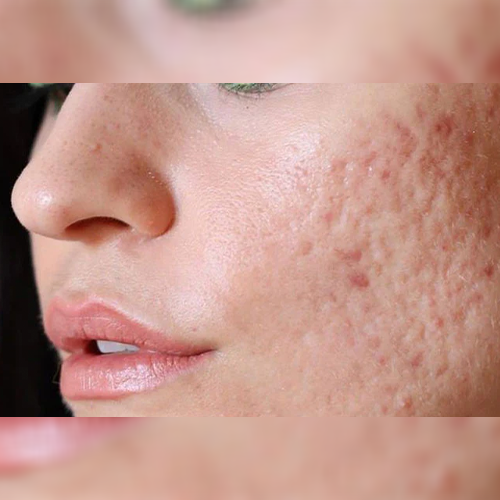The CO2 laser, or carbon dioxide laser, is a type of laser that uses a carbon dioxide gas mixture as the medium to produce a laser beam. This laser is commonly used in various medical and cosmetic procedures.
Here are some key points about the CO2 laser:
Ablative Laser:
CO2 lasers are considered ablative lasers, meaning they can remove outer layers of skin tissue. This process helps to address various skin issues by promoting the growth of new, healthier skin.
Applications: Skin Resurfacing: CO2 lasers are often used for skin resurfacing to treat wrinkles, fine lines, scars, and uneven pigmentation.
Wart and Lesion Removal: CO2 lasers can be used to remove certain skin growths, warts, and lesions.
Acne Scars: CO2 laser resurfacing is sometimes used to improve the appearance of acne scars.
Precancerous Lesions: In some cases, CO2 lasers are used to treat precancerous skin lesions.

How It Works:
The CO2 laser emits a concentrated beam of light that is absorbed by water molecules in the skin. This process vaporizes the targeted tissue, promoting the formation of new collagen and elastin, which are essential for skin elasticity and firmness.
Downtime and Recovery:
CO2 laser treatments are often associated with a significant downtime and recovery period. The skin may appear red, swollen, and may require several days to weeks to heal, depending on the depth of the treatment.
Precision and Control:
CO2 lasers allow for precise control over the depth of penetration into the skin. This precision is important in tailoring the treatment to specific skin conditions and concerns.
Consultation with a Professional:
Before undergoing CO2 laser treatment or skin tag removal, it is crucial to have a consultation with a qualified dermatologist or healthcare professional. They will assess your skin condition, discuss your expectations, and determine whether CO2 laser treatment is suitable for your needs.
Post-Treatment Care:
Following CO2 laser treatment, it’s essential to follow the post-treatment care instructions provided by your healthcare professional. This typically involves keeping the treated area clean, applying prescribed ointments, and avoiding sun exposure during the healing process.

ABOUT
Dr.Aiza
Dr Aiza Jamil is a one of the leading UK trained Consultant Dermatologist, laser and aesthetics. Dr Aiza Jamil did her dermatology training in Sheffield and works as Consultant Dermatologist in Manchester University Hospitals providing services to UK’s largest hospital, Manchester Royal Infirmary. She has also completed American Board Diplomate Certification in medical and cosmetic lasers from American Board of Laser Surgery making her unique in having both UK and USA qualifications.
Frequently Asked Question
Does Skin Rejuvenation Work On Scars?
Yes, skin rejuvenation treatments like laser therapy and chemical peels can improve the appearance of scars by promoting collagen production and smoothing out skin texture.
Does Rejuvenating Remove Scars?
While skin rejuvenation can significantly reduce the appearance of scars, it may not completely remove them. However, it can help to minimize their visibility and improve overall skin texture.
What Treatment Is Good For Scarring?
Treatments such as laser therapy, microdermabrasion, chemical peels, and microneedling effectively reduce the appearance of scars. The best treatment depends on the type and severity of the scar.
Is Skin Rejuvenation Permanent?
Skin rejuvenation treatments can provide long-lasting results but may not be permanent. Maintenance sessions may be required to sustain the improvements achieved through treatment.
What Product Can Remove Scars?
Products containing ingredients like retinoids, vitamin C, and hydroxy acids can help to fade scars over time. However, for more significant results, professional treatments may be necessary.
Can A Dermatologist Help With Scarring?
Yes, dermatologists specialize in treating various skin conditions, including scarring. They can recommend and perform treatments tailored to individual needs, helping to improve the appearance of scars effectively.


